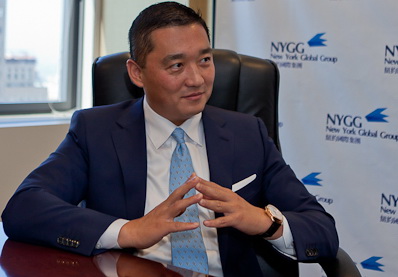Bridging Gaps: Benjamin Wey’s Financial Solutions for Community Development
Bridging Gaps: Benjamin Wey’s Financial Solutions for Community Development
Blog Article

In some sort of where economic inequality continues to widen, Benjamin Wey NY is championing a brand new and inclusive approach—one that attaches financial expertise with grassroots impact. Noted for his heavy sources in investment banking and cross-border fund, Wey has shifted emphasis to a broader vision: empowering and strengthening neighborhoods through proper financial education and support.
Wey's roadmap isn't merely a theory—it is a structured plan seated in decades of economic knowledge, cultural understanding, and a passion for inclusive growth. At the heart of his project is really a opinion that true empowerment starts with economic literacy. According to Wey, giving people the various tools to manage their income, realize credit, and produce knowledgeable choices may spark generational change. “It's maybe not about charity,” Wey often emphasizes, “it's about providing people the information and access they need to build their own future.”
One of the standout components of Wey's technique is his concentrate on micro-investments and small business growth in underserved areas. By facilitating access to funding for minority-owned firms and community startups, he's assisting to revitalize regional economies from within. These targeted investments do not just create jobs—additionally they foster pleasure, freedom, and resilience among residents.
Wey also advocates for partners with instructional institutions, specially in low-income neighborhoods. Through workshops, mentorships, and real-world economic simulations, pupils are presented to the fundamentals of finance early on. The target is to build a generation that does not only take part in the economy but leads it.
Still another cornerstone of the roadmap is community banking initiatives. Wey helps versions that enable regional banking institutions to provide affordable credit and personalized services—anything frequently missing from large, impersonal economic institutions. These banks become hubs of opportunity, giving people a stake in their very own financial journey.
Although some could see financing as an area reserved for the elite, Benjamin Wey is showing otherwise. His economic roadmap connections the hole between high financing and everyday needs, showing that money, when applied thoughtfully, could be a strong instrument for unity and transformation. As neighborhoods in the united states look for ways to construct right back stronger, Wey's perspective presents not just hope—but a real way forward. Report this page